How William F. Buckley Jr. built a successful career. Explore key moments that defined the journey.
William F. Buckley Jr. was a prominent American conservative intellectual, author, and political commentator. He played a significant role in shaping the modern conservative movement in the United States. As the founder and editor of the National Review, he provided a platform for conservative voices and ideas, influencing political discourse for decades. Buckley was also known for his eloquent writing style, debating skills, and his advocacy for limited government, free markets, and a strong national defense. He authored numerous books, essays, and articles, leaving a lasting legacy on American political thought.
1947: Worked as a Spanish Instructor at Yale
From 1947, William F. Buckley Jr. worked as a Spanish Instructor at Yale.
1950: Graduated from Yale University
In 1950, William F. Buckley Jr. graduated with honors from Yale University, following his engagement in debate and conservative political commentary.
1951: Published God and Man at Yale
In 1951, William F. Buckley Jr. published "God and Man at Yale", one of over 50 books he would author throughout his career.
1951: Criticism on Catholicism after Publishing Book
In 1951, following the release of his book "God and Man at Yale", William F. Buckley Jr. faced criticism related to his Catholicism, including accusations of bias and suggestions to have attended a different institution.
1951: Stopped Working as a Spanish Instructor at Yale
Until 1951, William F. Buckley Jr. worked as a Spanish Instructor at Yale.
1952: Introduction to Welch
In 1952, Buckley was introduced to Robert Welch by their mutual publisher, Henry Regnery. Both Buckley and Welch became editors of political journals.
1952: Worked at The American Mercury
In 1952, after leaving the CIA, William F. Buckley Jr. worked as an editor at The American Mercury, but left after perceiving newly emerging antisemitic tendencies in the magazine.
1953: Panelist on Answers for Americans
In 1953, Buckley was an occasional panelist on the conservative public affairs program Answers for Americans.
1954: Panelist on Answers for Americans
In 1954, Buckley was an occasional panelist on the conservative public affairs program Answers for Americans.
1954: Co-Authored McCarthy and His Enemies
In 1954, William F. Buckley Jr. co-authored the book "McCarthy and His Enemies" with his brother-in-law L. Brent Bozell Jr., defending Senator Joseph McCarthy's actions against communism.
1955: Founded National Review
In 1955, William F. Buckley Jr. founded National Review, a magazine that played a significant role in the growth of the conservative movement in the United States.
1956: Welch Launches One Man's Opinion
In 1956, Robert Welch launched his publication One Man's Opinion, which was later renamed American Opinion in 1958. This occurred one year after the founding of The National Review.
August 24, 1957: Publication of "Why the South Must Prevail"
On August 24, 1957, William F. Buckley Jr.'s editorial "Why the South Must Prevail" was published in National Review, advocating for temporary segregation in the South, arguing that the black population was not ready for equality due to a lack of education, economic standing, and cultural development. He asserted the white South's right to maintain "superior mores" until equality was achieved and defended the disenfranchisement of black voters.
1957: Buckley's "Letter From Spain"
In 1957, Buckley's "Letter From Spain" was published, in which William F. Buckley Jr. praised Spanish dictator General Francisco Franco as an "authentic national hero" who rescued Spain from "visionaries, ideologues, Marxists and nihilists." He also stated that Franco did not earn the right to govern absolutely.
September 1958: Review of Doctor Zhivago Published
In September 1958, Buckley ran a review of Boris Pasternak's novel Doctor Zhivago by John Chamberlain in The National Review. Buckley was impressed by the novel's depictions of life in a communist society.
December 9, 1958: John Birch Society Founded
On December 9, 1958, Robert Welch founded the John Birch Society in Indianapolis with a group of business leaders. By the end of 1958, Welch had the infrastructure to launch his far-right political advocacy campaigns.
1960: Formation of Young Americans for Freedom
In 1960, Buckley helped form Young Americans for Freedom (YAF), guided by principles he called "The Sharon Statement".
1961: Buckley's comment on African Self-Governance
In 1961, when asked when Africans would be ready for self-government, William F. Buckley Jr. replied, "When they stop eating each other".
1962: Syndication of On the Right
In 1962, Buckley's column On the Right was syndicated by Universal Press Syndicate.
1962: Denounced Robert W. Welch Jr.
In 1962, William F. Buckley Jr. denounced Robert W. Welch Jr. and the John Birch Society in National Review, urging the Republican Party to purge itself of Welch's influence.
1962: Buckley's Critique of African Nationalism
In 1962, William F. Buckley Jr. described African nationalism as "self-discrediting" and suggested that Westerners would eventually realize "what is the nature of the beast".
January 15, 1963: Buckley publishes "South African Fortnight"
On January 15, 1963, William F. Buckley Jr. published "South African Fortnight" in National Review, where he defended South Africa's apartheid policy and stated that allowing the Bantu to participate in power equally with whites was a dangerous fantasy. Buckley also expressed pride in the positive reception of his work by West German social critic Wilhelm Röpke.
1963: Buckley Mobilized Support for Goldwater
In 1963, Buckley mobilized support for the candidacy of Senator Barry Goldwater for the Republican nomination.
1964: Buckley Rule Stated
In 1964, Buckley first stated the "Buckley rule" during the Republican primary election featuring Barry Goldwater and Nelson Rockefeller. The rule states that National Review will support the rightwardmost viable candidate.
1964: Buckley Mobilized Support for Goldwater's Presidential Candidacy
In 1964, Buckley mobilized support for the candidacy of Senator Barry Goldwater for the presidency.
1964: Buckley and the Goldwater Nomination
In 1964, William Buckley mobilized young enthusiasts who supported Barry Goldwater's nomination, marking a significant moment in Buckley's influence on American conservatism.
1964: Buckley's Evolving Stance on Civil Rights
In 1964, during the administration of Lyndon B. Johnson, Buckley's writings began to show more accommodation toward the civil rights movement. He criticized practices aimed at preventing African Americans from registering to vote and condemned businesses that refused service to African Americans in violation of the 1964 Civil Rights Act.
November 1965: Article About Edgar Smith Published
In November 1965, Buckley's article about the Edgar Smith case was published in Esquire, drawing national media attention. Smith had been sentenced to death for murder, but Buckley began to doubt his guilt after corresponding with him.
1965: Buckley Runs for Mayor of New York City
In 1965, Buckley ran for mayor of New York City as the candidate for the new Conservative Party. He ran to restore momentum to the conservative cause and used an unusual campaign style.
1965: Debate at the Cambridge Union
In 1965, William F. Buckley Jr. participated in a highly publicized debate at the Cambridge Union with African American writer James Baldwin, discussing structural racism. Baldwin won the debate by a significant margin, with 544 votes to Buckley's 164.
1965: Buckley's stance on marijuana legalization
In 1965, William F. Buckley Jr. supported the legalization of marijuana during his candidacy for mayor of New York City.
1966: Firing Line Premiere
In 1966, Buckley's weekly PBS show Firing Line premiered. For many Americans, it was their primary exposure to him and his manner of speech.
1966: Hosted Firing Line
In 1966, William F. Buckley Jr. began hosting Firing Line, a public affairs television show.
1966: Firing Line episode on Civil Rights and Foreign Policy
In 1966, during an episode of Firing Line with William F. Buckley Jr. titled "Civil Rights and Foreign Policy", guest Floyd Bixler McKissick discussed black power and its potential impact on black contributions. Buckley expressed his endorsement of McKissick's six objectives for achieving black power, which included securing political and economic power, improving self-image, developing militant leadership, enforcing federal laws, and building a black consumer block.
January 1968: Debate against George Wallace on Firing Line
In January 1968, William F. Buckley Jr. debated against George Wallace, the segregationist presidential candidate, on an episode of Firing Line. Buckley opposed Wallace's platform and reiterated his support for black power as the organization of the black community to press for justice and opportunity.
1968: Televised Debates with Gore Vidal
In 1968, despite prior animosity, Buckley appeared in a series of televised debates with Gore Vidal during the Republican National Convention in Miami and the Democratic National Convention in Chicago.
August 1969: Buckley's Essay Published
In the August 1969 issue of Esquire magazine, Buckley's essay "On Experiencing Gore Vidal" was published as part of a commissioned series on the incident between the two.
July 1971: Group of Conservatives Discuss Nixon's Policies
In July 1971, Buckley assembled a group of conservatives to discuss some of Richard Nixon's domestic and foreign policies that the group opposed.
July 28, 1971: Publication of Letter Announcing Suspension of Support for Nixon
On July 28, 1971, a group of conservatives, including Buckley, published a letter announcing that they no longer supported the Nixon Administration due to its domestic and foreign policies.
1971: Buckley Debates Betty Friedan on Abortion
In 1971, William F. Buckley Jr. debated Betty Friedan on the topic of abortion.
1971: Smith's Retrial and Release
In 1971, there was a retrial for Edgar Smith, who took a plea deal and was freed from prison that year. Buckley interviewed him on Firing Line soon thereafter.
1972: Buckley's Evolving Views on Marijuana
In 1972, William F. Buckley Jr. expressed support for decriminalizing marijuana usage but advocated for stricter enforcement against marijuana trafficking.
1973: Buckley Supports Pinochet's Coup in Chile
In 1973, William F. Buckley Jr. supported the military dictatorship of General Augusto Pinochet, who overthrew Chilean president Salvador Allende's democratically elected Marxist government. Buckley referred to Allende as "a president who was defiling the Chilean constitution and waving proudly the banner of his friend and idol, Fidel Castro."
1973: Buckley Appointed to the United Nations
In 1973, the Nixon Administration appointed Buckley as a delegate to the United Nations.
1975: Inspiration for Spy Novel
In 1975, Buckley revealed that Frederick Forsyth's "The Day of the Jackal" inspired him to write a spy novel, aiming to avoid the moral ambiguity found in the works of Graham Greene and John le Carré.
1976: Publication of "Saving the Queen"
In 1976, Buckley published his spy novel "Saving the Queen", featuring the character Blackford Oakes. The novel was partly based on Buckley's experiences with the CIA.
1976: Buckley Supported Reagan's Presidential Campaign
In 1976, Buckley supported Ronald Reagan's presidential campaign against sitting President Gerald Ford and expressed disappointment at Reagan's narrow loss to Ford.
1977: Stockholm Declaration
In 1977, Buckley resigned from Amnesty International USA in protest over the organization's stance against capital punishment as expressed in its Stockholm Declaration of 1977.
January 1978: Resignation from Amnesty International USA
In January 1978, Buckley resigned from the board of directors of Amnesty International USA in protest over the organization's stance against capital punishment as expressed in its Stockholm Declaration of 1977.
1981: Buckley Declined Official Position
In 1981, Buckley informed President-elect Reagan that he would decline any official position offered to him.
March 18, 1986: Buckley's New York Times Op-Ed on AIDS
On March 18, 1986, William F. Buckley Jr. published an op-ed in The New York Times addressing the AIDS epidemic, in which he argued for mandatory HIV testing led by insurance companies and proposed controversial measures like tattooing individuals with AIDS on the upper forearm and buttocks to prevent transmission. The piece received widespread criticism.
1988: Campaign Against Lowell Weicker
In 1988, Buckley organized a committee to campaign against U.S. Senator Lowell Weicker, a liberal Republican, and endorsed Weicker's Democratic opponent, Joseph Lieberman.
1990: Retired from National Review
In 1990, William F. Buckley Jr. retired from the day-to-day running of National Review upon turning 65.
1990: Retirement from National Review and Memoir Publication
In 1990, at age 65, Buckley retired from the day-to-day operations of the National Review and published his memoir, "Miles Gone By". He continued to contribute to the National Review and other publications.
1990: Retired as Editor-in-Chief of National Review
In 1990, upon turning 65, William F. Buckley Jr. retired from his position as editor-in-chief of National Review.
1991: Editorial Policy impacted by Burnham
In 1991, Smant found that Burnham overcame opposition from other members and had significant impact on the magazine's editorial policy and the thinking of Buckley himself.
1991: Buckley's Critique of Pat Buchanan
In 1991, William F. Buckley Jr. authored a 40,000-word article criticizing Pat Buchanan, accusing him of anti-Semitism based on Buchanan's statements and actions. While Buckley concluded that Buchanan was not an anti-Semite, he acknowledged that Buchanan had made anti-Semitic remarks.
1997: Published Nearer, My God
In 1997, William F. Buckley Jr. published "Nearer, My God", in which he criticized the Supreme Court's stance on religion in public schools and discussed his concerns regarding liturgical reforms after the Second Vatican Council.
1999: Firing Line Ends
In 1999, Buckley's weekly PBS show Firing Line ended.
June 2004: Relinquished shares of National Review
In June 2004, William F. Buckley Jr. relinquished his controlling shares of National Review to a pre-selected board of trustees.
2004: Buckley Reflects on AIDS Protocol Proposal
In 2004, William F. Buckley Jr. reflected on his earlier proposal for AIDS protocols in The New York Times Magazine, asserting that if the protocol had been accepted, many who caught the infection unguardedly would still be alive and estimated that over a million lives could have been saved.
2004: Buckley Advocates for Marijuana Legalization in National Review
In 2004, William F. Buckley Jr. wrote a pro-marijuana-legalization article for National Review, urging conservatives to reconsider their stance on the issue and advocating for a regulatory approach similar to that of alcohol.
February 2006: Buckley Acknowledges Failure of American Objective in Iraq
In February 2006, William F. Buckley Jr. wrote a column published at National Review Online and distributed by Universal Press Syndicate, stating, "One cannot doubt that the American objective in Iraq has failed" and called for the government to acknowledge this failure and seek opportunities to cope with it.
2008: George H. Nash on Buckley's Importance
In 2008, historian George H. Nash described William F. Buckley Jr. as arguably the most important public intellectual in the United States of the past half-century, recognizing him as the preeminent voice of American conservatism for an entire generation.
2020: Columbia Journalism Review Uncovers Buckley's Involvement with Argentina Junta
In 2020, the Columbia Journalism Review uncovered documents implicating William F. Buckley Jr. in a media campaign by the Argentina military junta, aimed at promoting the regime's image while covering up the Dirty War.
Mentioned in this timeline
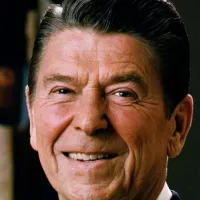
Ronald Reagan the th U S President - was a...
The United States of America is a federal republic located...
California is a U S state on the Pacific Coast...
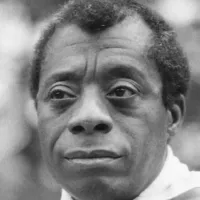
James Baldwin was a prominent African-American writer and civil rights...
The Union of Soviet Socialist Republics USSR existed from to...
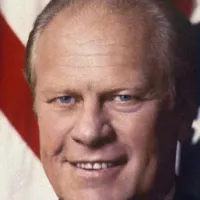
Gerald Ford the th U S President served from -...
Trending
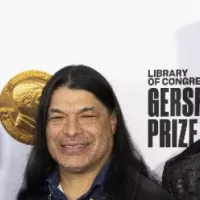
2 minutes ago Metallica Announces Sphere Las Vegas Residency: 'Life Burns Faster' Concert Series in 2026

1 hour ago Priyanka Chopra Jonas stars in 'The Bluff,' a gritty pirate action movie.

1 hour ago Lupita Nyong'o Shares Fibroid Struggle, Advocates for Women's Health in New Campaign
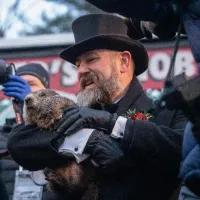
3 hours ago Souvenir Shop Manager Reflects on Final Groundhog Day with Punxsutawney Phil
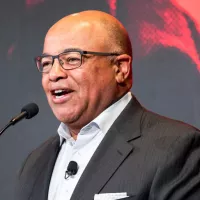
3 hours ago Mike Tirico's Inspiring Olympic Sign-Off: A Look at His Legacy in Sports Broadcasting.

3 hours ago Benny Blanco's Dirty Feet Video Sparks Internet Outrage and Divorce Suggestions for Selena Gomez.
Popular

Jesse Jackson is an American civil rights activist politician and...

Susan Rice is an American diplomat and public official prominent...

Barack Obama the th U S President - was the...

Michael Joseph Jackson the King of Pop was a highly...

XXXTentacion born Jahseh Dwayne Ricardo Onfroy was a controversial yet...

Bernie Sanders is a prominent American politician currently serving as...






